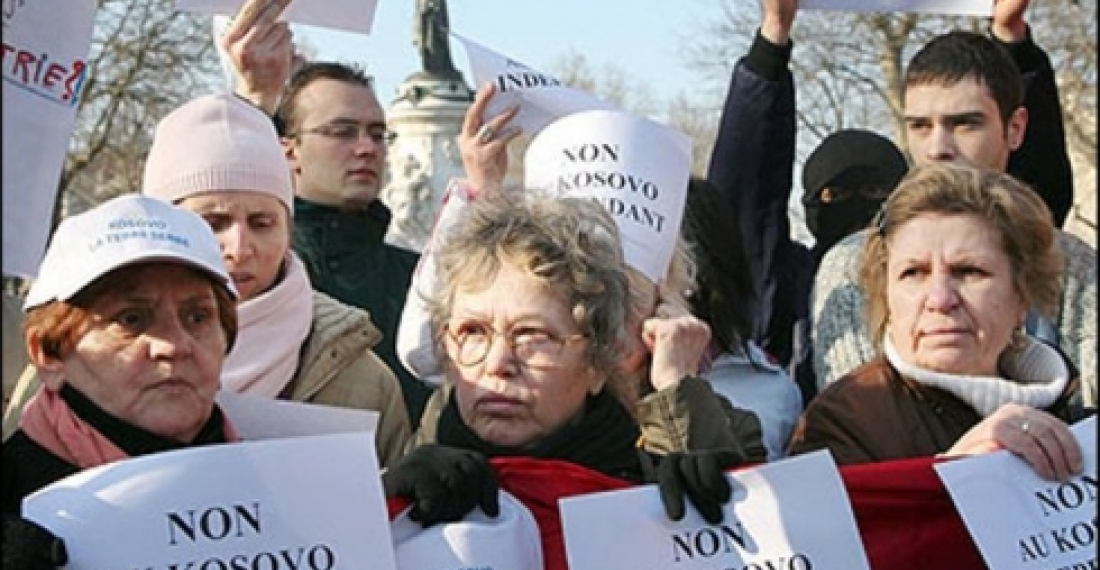Serbia has taken a step forward on the road to EU membership by striking a deal with Kosovo to deepen co-operation with its former province, whose independence it does not recognise. The agreement reached yesterday in Brussels comes one week before European leaders decide at a summit in Brussels whether to grant Serbia the status of being a candidate to join the EU.
This would enable Belgrade to begin formal accession talks. Although the leaders delayed a decision last December after violence at the north Kosovan border, the situation is calmer now. Serbia was expelled from Kosovo by Nato forces in 1999 after a civil war in which some 10,000 people were killed.
The new deal sets out how Serbia and Kosovo will manage their border. It gives Kosovo the right to participate in all regional meetings and sign agreements on its own account, a role previously taken by the UN mission in Kosovo. The designation for such engagements will be Kosovo* . The asterisk refers to a footnote saying this is without prejudice to positions on status and is in line with UN resolutions and court opinions.
These agreements are a major step forward, said EU foreign policy chief Cathrine Ashton and Enlargement Commissioner Stefan Füle. These agreements are particularly welcome in view of the deliberations in the [European] Council next week regarding candidate status for Serbia. Most member states are in favour of granting Serbia candidate status but Germany and others have pressed the country to improve its relations with Kosovo first.
However, Berlin is softening its position. In Belgrade this week, German foreign minister Guido Westerwelle welcomed important progress since December and said the next step was candidate status. European leaders will also discuss next week whether they should initiate a feasibility study for a stabilisation and association agreement between the EU and Kosovo, which would set it on a path to eventual membership. Such a step is being resisted by the five EU countries which do not recognise Kosovo s independence: Spain, Romania, Cyprus, Slovakia and Greece.
Commonspace.eu political editor said in a comment: "There are interesting lessons that can be learnt from the agreement between Serbia and Kosovo and that can be relevant for the situation in the Caucasus, including around the Karabakh conflict. No one situation is the same, but the principle of a flexible approach and emphasis on steps that will be beneficial for both sides is one that can be applied to many different situations. One of the criticisms of the negotiations around the Karabakh conflict has been that they are too narrowly focused. There are problems yet on the Kosovo situation as well but this agreement is certainly a move in the right direction."
source: commonspace.eu with the Irish Times
picture: Serbs in Paris demonstrate against the independence of Kosovo in February 2008 (Archive picture courtesy of the BBC)







